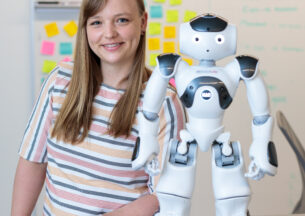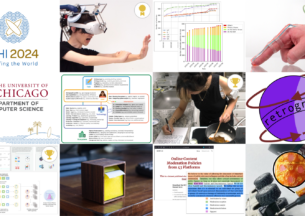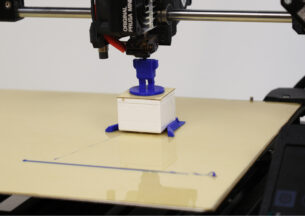Five UChicago CS Students Named in 2021 Class of Siebel Scholars
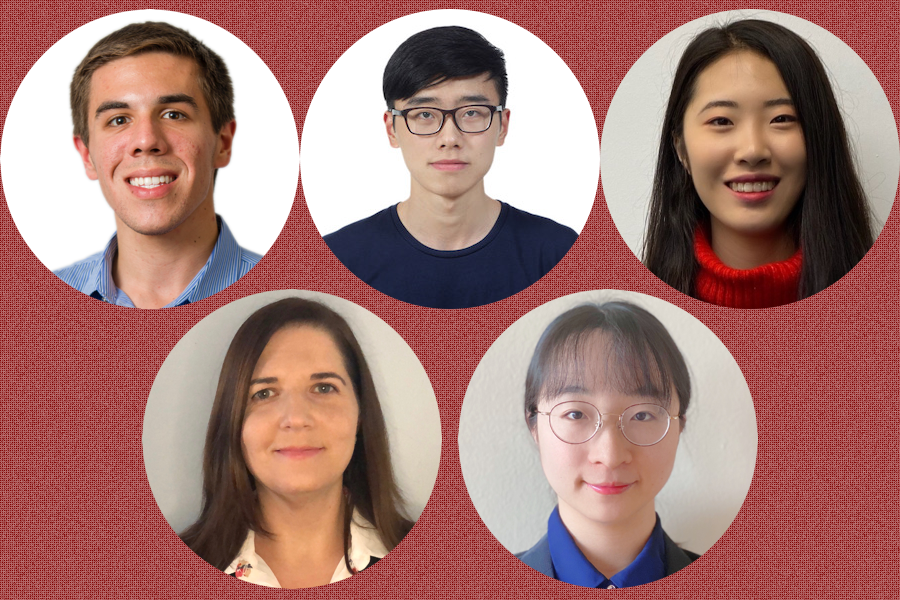
For the fourth year in a row, the University of Chicago was one of a select group of institutions with students named as Siebel Scholars by the Thomas and Stacey Siebel Foundation. Three PhD students from the Department of Computer Science and two from the MS in Computational Analysis and Public Policy (MS-CAPP) program received the honor, which provides funding for the final year of their degree and inauguration into a select group of 1500 scholars chosen since 2000.
This year’s UChicago Siebel Scholars — Steven Buschbach, Yongshan Ding, Huiying Li, Amanda Whaley, and Junwen Yang — study a diverse range of topics within the CS and MS-CAPP programs. From quantum computing, security, machine learning, and software engineering to physician shortages, pandemic response, and education, these students are already working at the frontier of computer science and its applications.
Since 2017, when the University of Chicago Department of Computer Science joined the Siebel program, 18 students have received the prestigious honor, which includes funding for their final year of studies and an invitation to a yearly conference. This year, 92 scholars were selected from 14 international universities. UChicago CS is one of 9 graduate programs in computer science to have students selected into the program.
“Every year, the Siebel Scholars continue to impress me with their commitment to academics and influencing future society. This year’s class is exceptional, and once again represents the best and brightest minds from around the globe who are advancing innovations in healthcare, artificial intelligence, the environment and more,” said Thomas M. Siebel, Chairman of the Siebel Scholars Foundation. “It is my distinct pleasure to welcome these students into this ever-growing, lifelong community, and I personally look forward to seeing their impact and contributions unfold.”
Read about the UChicago 2021 Siebel Scholars below:
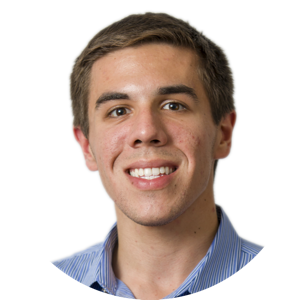
Steven Buschbach
A student in the MS in Computational Analysis and Public Policy (MS-CAPP) program, Buschbach uses computational approaches to studying health policy. He investigates causes of the physician shortage in rural America by designing a discrete choice model that describes physician movement around the United States using a simulated method of moments approach. He also works on a project that uses Bayesian statistics to infer real-time transmissibility, predict forward caseloads, and identify least-disruptive epidemic controls to provide policymakers with a better toolkit to handle COVID-19 and future epidemics. As a Harvard College Japan Initiative board member, Steve helped plan and direct a summer educational conference in Japan. He is currently involved with the local chapter of First Descents, a nonprofit that provides support for fellow young adult cancer survivors through outdoor adventures. Steven earned a B.A. in Statistics from Harvard College.
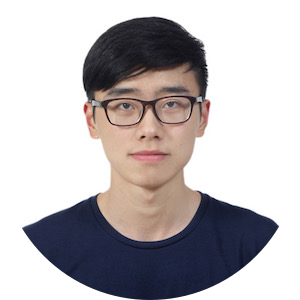
Yongshan Ding
Ding, a PhD student in Computer Science, contributes to the field of quantum computer systems in both research and education. In addition to research published in top venues, Ding is lead author on a book (co-authored with his advisor, Professor Fred Chong) that is the first textbook on a systems view of quantum computing. He is currently at MIT working with Ike Chuang to teach this material in a massively-online course. Ding has led collaborations that have included 25 co-authors over seven projects and mentored five undergraduates. At CMU, he was one of eight university-wide academic coaches who organized workshops for undergraduate and graduate students on study skills and stress management. Earlier this year, Ding received the William Rainey Harper Dissertation Fellowship, the highest honor awarded to UChicago graduate students.
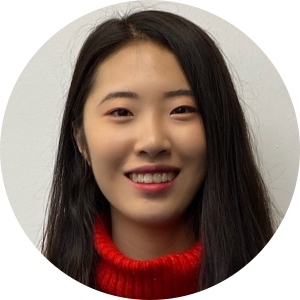
Huiying Li
Li is a PhD student in the Department of Computer Science whose research falls within the areas of security, machine learning, and human-computer interaction. She has published papers in the top security conferences (Usenix Security 2020, CCS2019, IEEE S&P 2019) as well as in CHI2020, the most prestigious human-computer interaction conference, where her paper won Best Paper Honorable Mention. This work, on a wearable audio jammer, received world-wide media coverage. She is also the recipient of the highly competitive Facebook Fellowship. Li plays a leadership role in the SAND Lab, mentoring and publishing papers with graduate and undergraduate students, as well as summer research interns and visitors. As an undergraduate, Li was active in the Fudan University student council, serving as vice-chair.
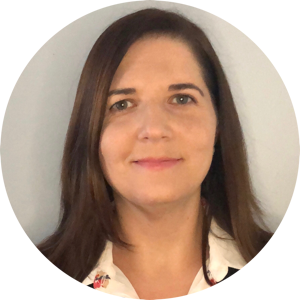
Amanda Whaley
Whaley is a student in the MS in Computational Analysis and Public Policy program, where she is committed to improving data-driven decision-making. As a research assistant in the Center for Spatial Data Science, she applied machine learning and computer vision techniques to analyze how public spaces can be used to better inform local investment and public policy. Currently, she is applying those same skills and techniques to projects related to K-12 education. Before enrolling at The University of Chicago, Whaley was a leader in the field of STEM education. In addition to teaching physics and creating an annual STEM career exploration conference, she led district-wide efforts to improve teacher evaluation data collection systems. Whaley holds a BS in Physics with minors in Mathematics and Russian from the University of South Carolina.
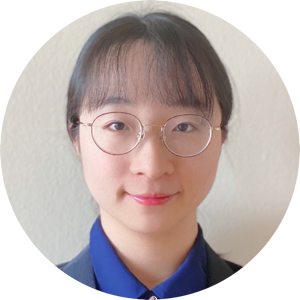
Junwen Yang
Yang is a fourth-year Ph.D. student in the Department of Computer Science at the University of Chicago. Her research focuses on automatically detecting and fixing performance and correctness bugs in big data software through a combination of program analysis, software engineering, and database techniques. Her research has led to first-author papers published at top software engineering conferences (FSE’18, ICSE’18, ICSE’19, SPLASH’19, ICSE’20), winning the 2019 SIGSOFT Distinguished Paper Award and 2019 SIGPLAN John Vlissides Award, as well as co-authored papers at database conferences (CIKM’18, CIDR’20). Her research found thousands of bugs in popular open-source web applications, raising attention in the open-source community and featured on Morning Paper blog twice, RubyWeekly, and Hacker News. She also recently won the Harper Dissertation Fellowship. Yang has served as a mentor in UChicago ACM-W mentor program and an instructor in compileHer program, teaching computer science and STEM concepts to middle school girls.






